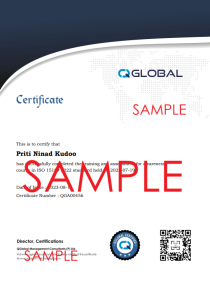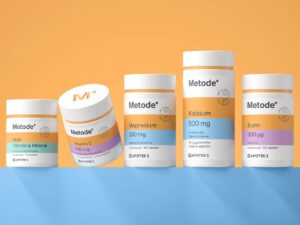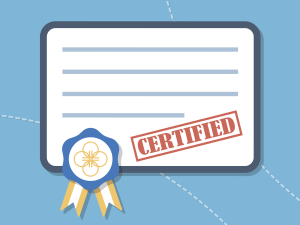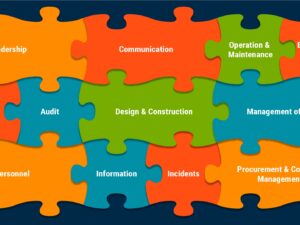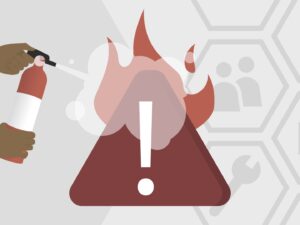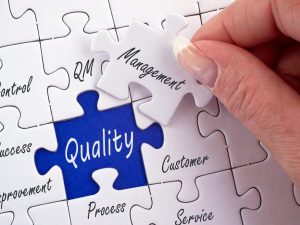ISO 9001 2015 & ISO 45001 2018 Integrated Management System (IMS) – Internal Auditor Course
- Description
- Curriculum

The ISO 9001 standards provide guidance and tools for organizations who want to make sure that their products and services consistently meet customer’s requirements, and that quality is consistently improved. ISO 9001 standards sets out the criteria for a quality management system and is the only standard in the family that can be certified to (although this is not a requirement). It can be used by any organization, large or small, regardless of its field of activity. ISO 45001 2018 occupational health and safety management systems will help organizations to improve employee safety, reduce workplace risks and create better, safer working conditions. By implementing ISO 45001 standard, the burden of occupational injuries and diseases such as losses from early retirements, staff absence and rising insurance premiums can be significantly reduced. ISO 45001 takes into account other International Standards in this area such as OHSAS 18001, the International Labour Organization’s ILO-OSH Guidelines, various national standards and the ILO’s international labour standards and conventions. ISO 45001 is applicable to all organizations, regardless of size, industry or nature of business. It is designed to be integrated into an organization’s existing management processes. This internal auditor course on an integrated management system based on ISO 9001 2015 and ISO 45001 2018 standards will help you learn how to initiate an audit, prepare and conduct audit activities, compile and distribute audit reports and complete follow-up activities. On successful completion of this course, you will be able to optimize your auditing skills with the internationally recognized ISO 9001 2015 and ISO 45001 2018 standards and boost your audit capabilities. Also gain confidence in planning and performing an effective audit, as well as reporting and taking corrective action where necessary. This internal auditor training course develops the necessary skills to assess and report on the conformance and implementation of processes based on the requirements of ISO 9001 2015 and ISO 45001 2018 standards.
Who Should Attend?
- Anyone involved in the planning, implementing, maintaining, supervising or auditing of a management system based on ISO 9001 2015 and ISO 45001 2018 standards
- Those who like to handle the role of an internal auditor in an organisation
- Employees of any organisation who wish to audit their organisation’s quality and occupational health and safety management system
- Those involved in second party audits such as vendor audits
- Personnel who wish to pursue career as an internal auditor
- Expert advisors in quality and occupational health and safety management system
Key Benefits
- Gain the skills to plan, conduct, report and follow up first and second party audits in accordance with ISO 19011
- Learn skills to lead an internal audit team
- Identify the aims and benefits of an integrated management system audit
- Interpret the requirements of ISO 9001 2015 and ISO 45001 2018 standards for audit application
- Grasp the application of risk-based thinking, leadership and process management
- Acknowledge the correlation between ISO 9001 2015 and ISO 45001 2018 standards, other standards and regulatory frameworks
- Learn the latest techniques in internal auditing
- Consolidate your expertise with the latest developments and contribute to the continuous improvement of the business
- Fill gaps in your professional knowledge
Learning & Evaluation Method
This is a live and interactive course. Once you purchase the course, our team will contact you to plan the training. No matter where you are located, we schedule the classes based on your convenience and time zone. You can plan to attend the training in sessions of 4 or 8 hr duration, based on how much time you can spend in a day.
Certification
There are increasing numbers of organizations, who prefer candidates those who have completed management system trainings from a recognized institution. Certification demonstrates your commitment to superior professionalism, upholding industry standards, and continued learning. These merits can help boost your professional credibility and prestige within your own network, in your organisation, with your current clients, and when pursuing new business opportunities. After the successful completion of the course and final exam, you will be awarded with a certificate of completion issued by QGlobal. Your credentials will be made available in the global online directory and can be verified by anyone searching with the certificate number. Without doubt we can say that our training courses are well recognized and sought after by organizations across various geographies.
Buy for group Are you planning to buy this course for a group? We have the best prices for you! Select ‘Buy for Group’ option and add to the cart. You will get a discount of 60 – 75% for a group of up to 10 participants. To make a group purchase, create your group name and add individual emails of up to 10 participants. Each participant will get the access to the course materials, exam and the certificate. We will arrange one live-online session for the entire group.
Total: 206 Courses View all
Total: 206 Courses View all
-
1Introduction to standards and certification
- Purpose of standardization
- Benefits of certification
-
2OHS - Working with tools
-
3Introduction to ISO 9001 2015 standards
Application areas
Terms and definitions
Quality management principles
Process based approach
Plan-Do-Check-Act cycle
Risk based thinking
Benefits of certification
Certification process flow
-
4OHS - Working at height
-
5Introduction to ISO 45001 2018 standards
-
6OHS - Confined space
-
7IMS 945 Context of the organization
-
8OHS - Identifying the hazards
-
9IMS 945 Leadership
-
10OHS - Introduction to hazard identification and risk analysis
-
11IMS 945 Planning
-
12HSE - Chemical handling
-
13IMS 945 Support
-
14HSE - Waste management
-
15IMS 945 Operation
-
16HSE - Effluent management
-
17IMS 945 Performance evaluation
-
18HSE - Air emissions
-
19IMS 945 Improvement
-
20HSE - Noise
-
21HSE - Safety of pressure vessels
-
22HSE - Storing and stacking
-
23HSE - Material handling
-
24HSE - Vehicle management
-
25HSE - Equipment safety
-
26HSE - Electrical safety
-
27HSE - Chemical safety
-
28HSE - Handling fire emergency
-
29HSE - Hot work
-
30Introduction to ISO 19011 2018 Guidelines for auditing management systems
- Scope
- Normative references
- Terms and definitions
-
31ISO 19011 Principles of auditing
-
32ISO 19011 Managing an audit program
- Establishing audit programme objectives
- Determining and evaluating audit programme risks and opportunities
- Establishing the audit programme
- Roles and responsibilities of the individual(s) managing the audit programme
- Competence of individual(s) managing audit programme
- Establishing extent of audit programme
- Determining audit programme resources
- Implementing audit programme
- Defining the objectives, scope and criteria for an individual audit
- Selecting and determining audit methods
- Selecting audit team members
- Assigning responsibility for an individual audit to the audit team leader
- Managing audit programme results
- Managing and maintaining audit programme records
- Monitoring audit programme
- Reviewing and improving audit programme
-
33ISO 19011 Conducting an audit
- Initiating audit
- Establishing contact with auditee
- Determining feasibility of audit
- Preparing audit activities
- Performing review of documented information
- Audit planning
- Assigning work to audit team
- Preparing documented information for audit
- Conducting audit activities
- Assigning roles and responsibilities of guides and observers
- Conducting opening meeting
- Communicating during audit
- Audit information availability and access
- Reviewing documented information while conducting audit
- Collecting and verifying information
- Generating audit findings
- Determining audit conclusions
- Conducting closing meeting
- Preparing and distributing audit report
- Preparing audit report
- Distributing audit report
- Completing audit
- Conducting audit follow-up
-
34ISO 19011 Competence and evaluation of auditors
- Determining auditor competence
- Personal behavior
- Knowledge and skills
- Achieving auditor competence
- Achieving audit team leader competence
- Establishing auditor evaluation criteria
- Selecting appropriate auditor evaluation method
- Conducting auditor evaluation
- Maintaining and improving auditor competence
-
35ISO 19011 Audit role plays

